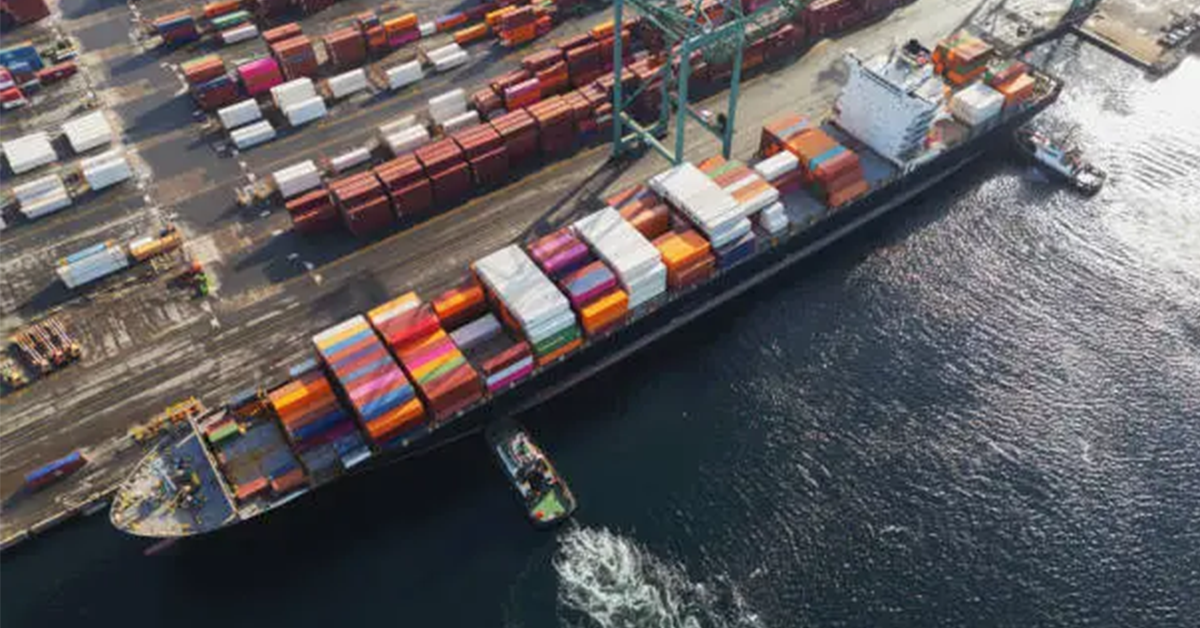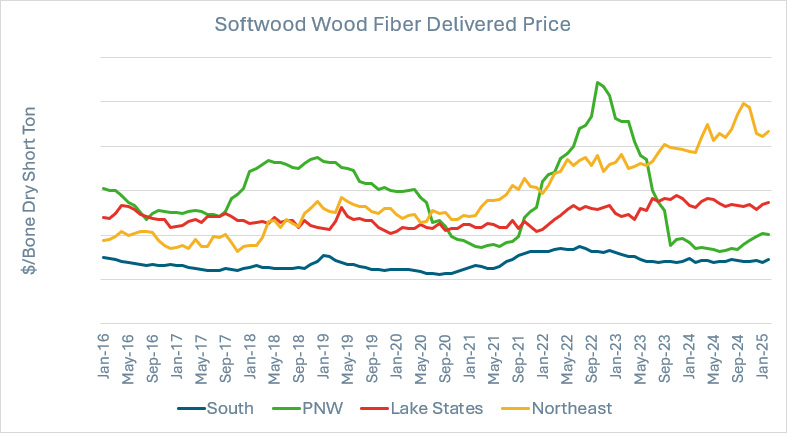2 min read
The Ripple Effects of US Tariffs on the Pulp and Paper Industry
ResourceWise
:
May 19, 2025 10:39:46 AM

The trade tensions that have dominated US economic policy since the Trump administration have left a tangible impact across a range of industries—including pulp and paper.
Initial rounds of tariffs targeted imports from key trade partners like Canada and China, followed by retaliatory duties from affected countries. Since the implementation of the tariffs, companies have started to report on how they have impacted their operations.
From what we’ve seen so far, global supply chains continue to adjust. Companies and markets are navigating new complexities that may reshape the future of this foundational industry.
How Have Companies Responded?
Responses from companies have ranged from strategic pivots to financial strain, depending on their geographic exposure and product focus.
Mercer International: Mercer International, which operates pulp mills in both North America and Europe, has been hit hard. In its Q1 2025 earnings, the company cited margin compression caused by higher raw material costs and shifting demand. CEO Juan Carlos Bueno noted that, "tariff-induced trade friction has complicated customer relationships and lengthened order cycles," underscoring the downstream impact on both operations and sales.
Rayonier Advanced Materials (RYAM): RYAM also reported that the trade environment has heightened uncertainty. The company experienced increased volatility in pulp pricing and said in its quarterly report that some export customers were postponing orders until the tariff landscape became clearer. This hesitancy has directly impacted revenue and production planning.
Procter & Gamble: On the consumer front, Procter & Gamble has taken a different route—transparency. The company openly stated that tariffs would lead to price hikes on several everyday paper products like toilet paper and paper towels. With cost increases too large to absorb, the company has begun passing these down to end consumers.
Swedish Exporters: Meanwhile, the Swedish Forest Industries Federation criticized the US decision to impose a 10% tariff on Swedish pulp and paper exports, calling the move "regrettable" and counterproductive to open trade relations.
How Could This Impact Trade Flows and Regional Markets?
The global trade environment is adjusting quickly as countries seek to capitalize on newly opened doors—and avoid newly erected barriers.
Mexico: Seizing a Strategic Opportunity
Mexico sees the tariff shuffle as an opportunity to strengthen its position in the North American market. Mexican paper mills have noted an uptick in demand from US buyers seeking to avoid Canadian or Chinese suppliers entangled in tariffs. According to The Pulp and Paper Times, mill operators in Mexico are scaling up production and exploring joint ventures to fill supply gaps and build long-term customer bases in the US.
India: Diversification to Offset Asian Losses
India views the shifting trade patterns as a way to bolster its paper and packaging exports. With Chinese suppliers squeezed by US tariffs, Indian manufacturers are stepping in to offer more competitive pricing and lower-risk partnerships. Industry representatives have expressed optimism that India can emerge as a reliable alternative, especially for specialty papers and recycled fiber.
Latin America: Emerging Export Powerhouse
Beyond Mexico, other Latin American countries such as Brazil and Chile are also rising as viable alternatives in the pulp and cellulose space. According to Portal Packaging, rerouted global trade flows are bringing renewed attention and investment to Latin America, where mills can offer high-quality output with fewer geopolitical strings attached.
Why It's Important to Stay Ahead
The US tariffs have already reshaped the pulp and paper industry's landscape. From company restructuring and price inflation to global rerouting of trade flows, the repercussions are far-reaching. With uncertainty still looming, being equipped with timely intelligence is the surest path to resilience.
At ResourceWise, we specialize in delivering up-to-date, actionable insights into how policy changes, market dynamics, and supply chain movements affect the global pulp and paper industry. From real-time data to in-depth forecasts, our tools empower you to anticipate change rather than react to it.
To receive regular updates and expert insights, subscribe to the ResourceWise newsletter or contact us to learn more about our custom market solutions.





